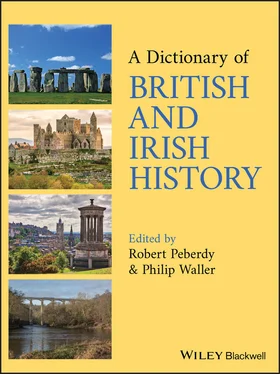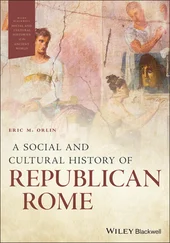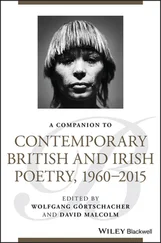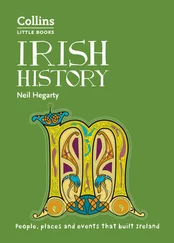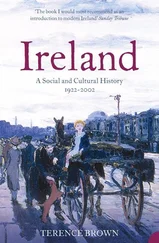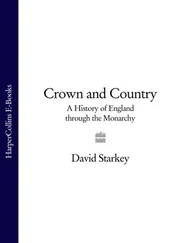The premier, Éamon DE VALERA, opportunistically used the ABDICATION CRISIS (late 1936) to minimize the role of the British Crown. Meeting in emergency session, the Free State’s Parliament passed a constitutional amendment Act (11 Dec.) which removed all references to the Crown from the constitution (and thereby eliminated the Crown’s role in internal affairs, such as appointment of the premier and ministers by the governor‐general). The External Relations Act (12 Dec.) confirmed the abdication of EDWARD VIII and permitted his successors to represent the IFS in foreign relations. (The post of governor‐general was abolished in May 1937.)
This legislation prepared the way for de Valera’s 1937 CONSTITUTION, which instituted an elected president, although it remained unclear whether president or monarch was head of State. The situation was clarified in 1948 when the External Relations Act was repealed and a republic, outside the COMMONWEALTH, was declared (effective from 1949).
ABERCONWY, TREATY OFAgreed on 9 Nov. 1277 (at Aberconwy, GWYNEDD, NW Wales); between LLYWELYN AP GRUFFUDD, prince of Gwynedd, and EDWARD I, king of England; it followed Edward's 1277 invasion. Llywelyn retained the title PRINCE OF WALES, but was fined for disobedience; he conceded territories (including Y BERFEDDWLAD) and the release of DAFYDD AP GRUFFUDD (brother). See also ANGLO‐WELSH RELATIONS, 6TH–13TH CENTURIES. ABERDEEN
A city in NE Scotland. Centre of Aberdeen sheriffdom 12th century–1975; a unitary authority from 1996.
Founded as a BURGH by King DAVID I (between 1124 and 1132), Aberdeen (originally Brittonic, meaning ‘Mouth of the Don') became the principal port of NE Scotland, exporting hides, wool and fish to Continental Europe. After the local bishop's see was moved to Aberdeen (by 1132), a second burgh developed around the new cathedral. Universities were founded in 1495 (King's College) and 1593 (Marischal College) and united in 1860. SHIP‐BUILDING flourished in the late 18th century, and FISHING (cod‐trawling) from the 1880s to the late 20th century. The city expanded again from the 1970s as the principal centre of the oil industry. An institute of technology was upgraded as Robert Gordon University in 1992. See also NORTH SEA GAS AND OIL INDUSTRIES.
Est. popn: 1300, 2000; 1600, 10,000; 1800, 27,000; 1900, 153,000; 2000, 213,000.
ABERDEEN, 4TH EARL OF
(b. 28 Jan. 1784 at Edinburgh, Scotland; d. 14 Dec. 1860 at London, England, aged 76). Twice British foreign secretary; prime minister of a WHIG– PEELITE coalition 1852—5.
George Gordon was an orphan. His guardians, William PITT the Younger and Henry Dundas, arranged his education and introduced him to TORY politics. He inherited his earldom in 1801 and sat in the House of Lords as a Scottish representative peer from 1806.
As special ambassador to Austria (1813–14), Aberdeen was not conspicuously successful. He occupied himself with archaeology and estate management until called to be foreign secretary under the duke of WELLINGTON (1828–30), when he negotiated the borders of GREECE. Again foreign secretary (1841–6), in the ministry of Sir Robert PEEL, he conciliated the USA and improved relations with FRANCE.
When the Conservative Party split in 1846, Aberdeen supported Peel. A convinced ‘free trader’, he emerged as leader of the PEELITES (1850) and formed a coalition government (1852) with Lord RUSSELL, Lord PALMERSTON and W.E. GLADSTONE in key offices. The ministry lacked unity, Aberdeen appeared irresolute, and Great Britain drifted into the CRIMEAN WAR against his better judgement (1854). Mismanagement of the campaign forced his resignation in Jan. 1855. Succeeded by Palmerston.
ABERFAN DISASTERAccident on 21 Oct. 1966, when a coal tip (waste and sludge) at the village of Aberfan (near Merthyr Tydfil, Glamorgan, Wales) collapsed. The ensuing avalanche buried a school and neighbouring streets, killing 116 children and 28 adults. See also COAL INDUSTRY, WALES. ABERNETHY, TREATY OFThe submission (terms unknown), in autumn 1072 (at Abernethy, E Scotland), which was imposed on King MALCOLM III of Scotland by King WILLIAM I of England, who had invaded following Scottish raids. It was ineffective: Malcolm resumed raids. ROBERT CURTHOSE (1080) and King WILLIAM II (1091) tried to reimpose the agreement. Malcolm died while attacking N England in 1093. See also SCOTTISH–ENGLISH RELATIONS BEFORE 1290. ABJURATION ACTLegislation by the English Parliament, Jan. 1702, which required office‐holders and Church of ENGLAND clergy in England and Wales to take an abjuration oath (oath of renouncement) recognizing WILLIAM III as the rightful king and denying that the Stuart claimant ‘James III’ had any right. The Act was occasioned by the recent death of JAMES VII/II (Sept. 1701) and recognition of his son as king by Louis XIV of France. A modified oath was reimposed by later Acts, and replaced by a new oath of allegiance in 1858. See also JACOBITISM, IMPACT ON BRITISH POLITICS. ABLETT, NOAH(b. 4 Oct. 1883 at Ynys‐hir, Glamorgan, Wales; d. 3 Oct. 1935 at Merthyr Tydfil, Glamorgan, aged 52). Miners' leader; campaigner for confrontation between Capital and Labour (owners and employees). Ablett and colleagues wrote The Miners' Next Step (1912), a syndicalist manifesto which advocated the overthrow of coalowners by industrial action. See also TRADE UNIONISM, WALES; SYNDICALISM. ABORTION, GREAT BRITAINThe aborting (killing) of human foetuses was made illegal by the UK Parliament in 1861. Termination of pregnancies up to 28 weeks was permitted from 1968 under the 1967 Abortion Act (proposed by Liberal MP David Steel with support from the Labour government), and reduced to 24 weeks in 1990. Two doctors were required to certify that a woman would be harmed mentally or physically by giving birth. By end 2015, about 8.5 million foetuses had been aborted. Feminists have strongly opposed further restrictions on abortion, while the Catholic Church has consistently opposed its provision. ABORTION, IRELAND
Abortion was made illegal in Ireland by the UK Parliament in 1861. In the Republic of Ireland in 1983, in response to pressure for decriminalization and following a referendum, unborn children were also protected by a constitutional amendment. However, abortion remained contentious, with the Catholic Church strongly opposed.
In March 1992 the Republic’s Supreme Court ruled that abortion was allowed when a mother’s life was in danger, including by risk of suicide. This prompted referendums on three further amendments (Nov. 1992). Two were accepted, allowing procurement of abortions abroad and distribution of information about services in other jurisdictions. (The rejected amendment would have prohibited abortion for risk of suicide.) In 2002 another referendum sought prohibition of abortion for risk of suicide, and proposed new penalties for performing or assisting an abortion. It was narrowly rejected (50.42% to 49.58%).
In 2010 the European Court of Human Rights accepted that there was no right to an abortion in the Republic, but advised that clarification was needed about permissible medical circumstances for abortions. That judgment and the death (2012) of a woman denied an abortion on medical grounds resulted in legislation (2013) specifying allowable medical circumstances, including risk of suicide.
After the 2016 election the FINE GAEL‐led government of Enda KENNY held a Citizens’ Assembly to consider changes to the 1983 amendment. Its report (June 2017) recommended liberalization. A referendum, held under Kenny’s successor Leo VARADKAR, approved replacement of the amendment with authorization for abortion (May 2018). Legislation in Dec. 2018 repealed the 2013 Act and allowed abortions up to 12 weeks’ gestation.
Читать дальше
